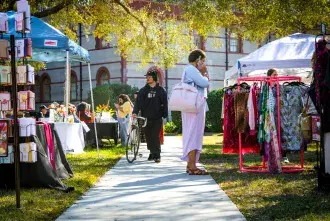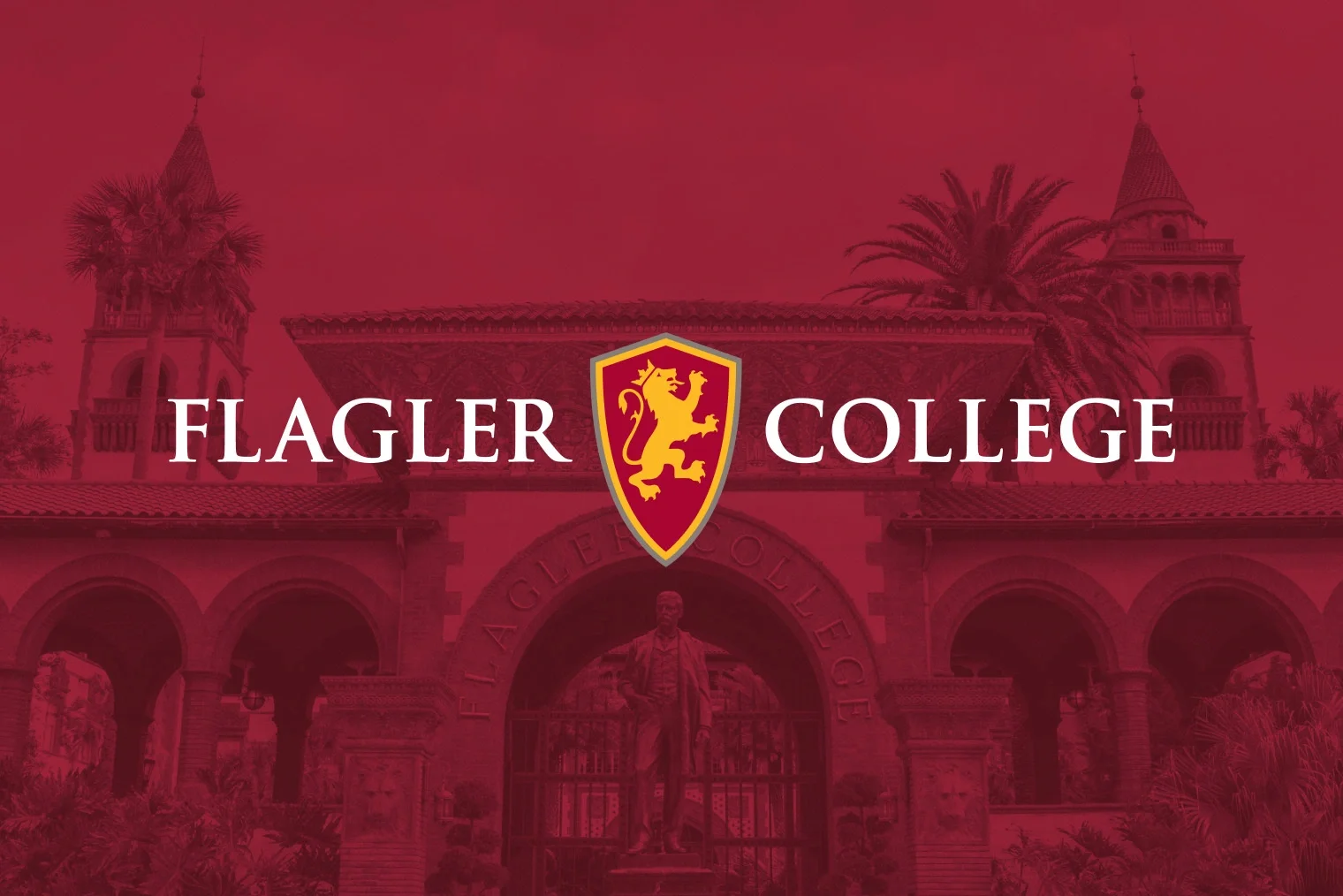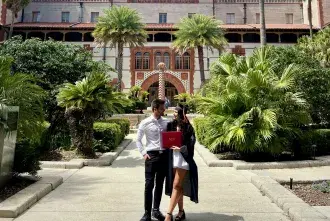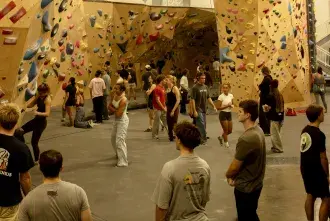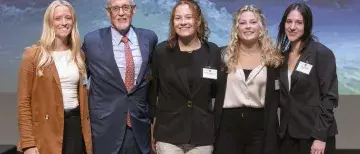
This year’s Business Week theme, “Innovation: Leading Through Learning," set the stage for the Lion’s Cage competition, where students tackled three real-world challenges:
- Challenge #1: Innovation of a New Product
- Challenge #2: Innovation to Improve an Existing Product
- Challenge #3: Innovation to Solve a Local, National, or Global Issue
The winning team—juniors Elizabeth “Liz” Rieke, Lauren Gallagher, Bridget Young, and senior Asher Phillips—presented a pitch called “Park de Leon,” designed to alleviate on-campus parking frustration using Bluetooth Low-Energy (BLE) sensors.
Lauren Gallagher, vice president of Flagler’s Student Government Association, emphasized the project’s relevance, stating, “At least two people at each weekly general assembly complain about parking.”
As part of their research, the team pinpointed a key disparity: roughly 2,100 parking passes are issued for only about 1,500 parking spaces. However, according to the College, this approach is a standard model across higher education, where course times are staggered and not all students are on campus simultaneously. While this model is practical and widely adopted, the team saw an opportunity to improve the parking experience by increasing transparency and reducing the time spent looking for an open parking space.
Their proposed business solution, Park de Leon, uses Bluetooth Low-Energy (BLE) sensors paired with specialized parking stickers to provide real-time updates on parking availability through a website and, eventually, an app.
“So as students and employees pull into a campus lot, their spot is correctly accounted for, and they can look at the app on their phone and see if blocks are filling up or if there are still available spaces for them to park in,” the team explained during their presentation.
In identifying market trends and other smart parking systems, the team found that the go-to solutions are typically expensive AI cameras or in-ground sensors, which are cumbersome to install. Park de Leon is tailored to the unique challenges of St. Augustine and the College, such as cost considerations and the preservation of historic roads.
“Seeing all of the old features, we wouldn’t be able to rip up the historic roads,” Bridget Young said. “We also have limited electricity in lots, so we really had to look at what we could actually do.”
So, when asking themselves, ‘Is Park de Leon feasible?’ the team’s extensive research and presentation preparation allowed them to confidently answer, ‘Yes!’
“With our phased approach from website to app, it is not only cost-efficient but will also give us real-world testing options,” Liz Rieke said during their pitch. “We have a captive audience with clear pain points around parking. Privacy and security are also built into the encrypted Bluetooth Low-Energy parking passes. This means you will not be tracked outside of Flagler College’s campus.”
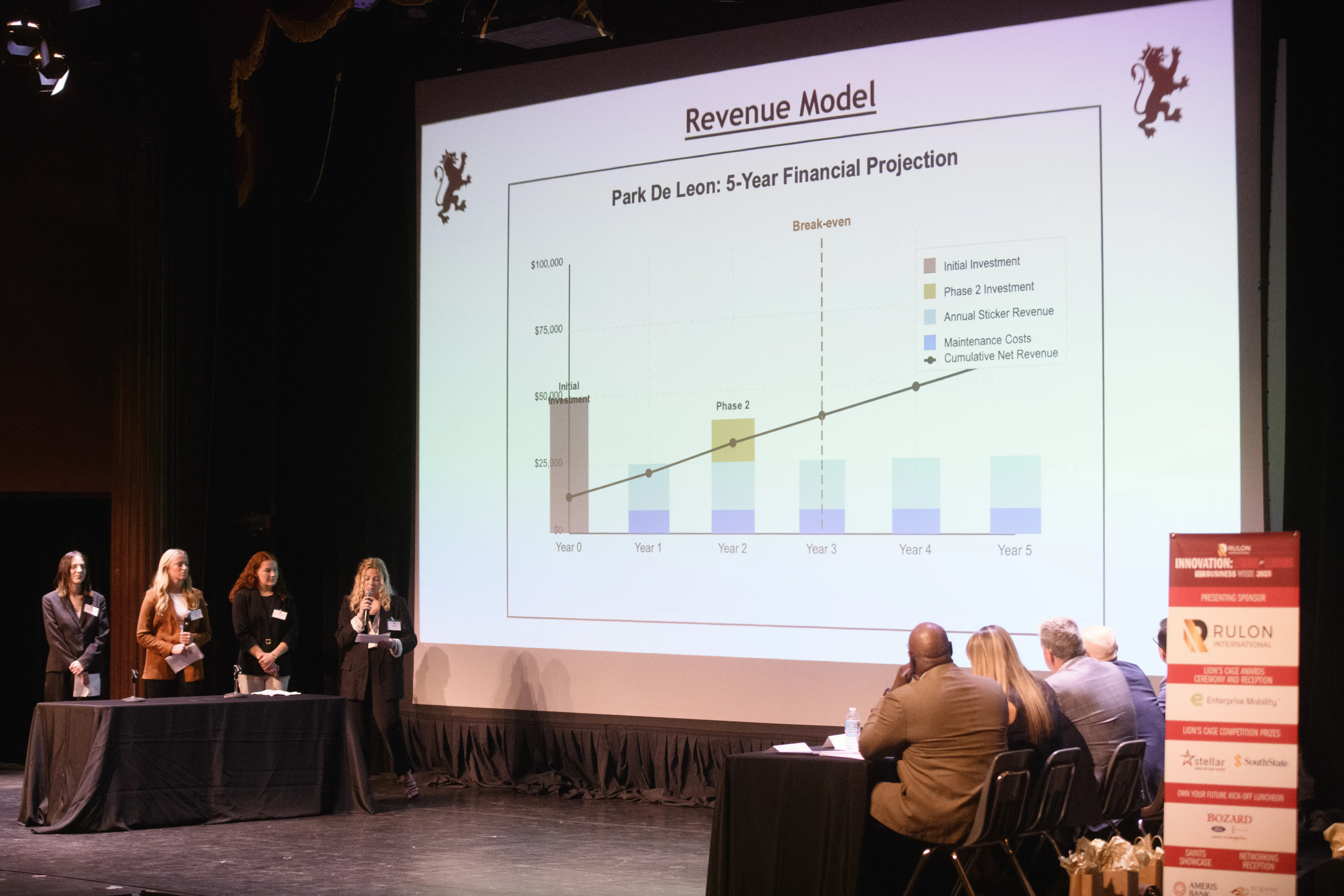
The phased approach Rieke describes would start with a website and transition to an app, ensuring cost-efficiency and scalability. The team projects that by adding $20 to each parking pass, they can generate approximately $28,000 in annual revenue, reaching profitability within five years.
"Moving forward, if we wanted to expand it, we couldn’t do that on the Flagler College website,” Young said. “We would need our own personal app to sell to other schools if we were to actually do it.”
The project was developed as part of their capstone class with Professor Dave Rivera, and interestingly, the top five Saints Showcase finalist teams that moved onto the Lion’s Cage were all HTM majors. Young thinks the fast-paced and immersive professional experiences of the Flagler HTM program set her team and their peers up for success.
“We really only had three weeks to plan everything,” she said. “But I feel like [as HTM majors] we’re used to going all-in with effort, so I think that experience helped us.”
While most teams opted to utilize AI as a central functional element of their business pitch, Gallagher said they listened to Professor Rivera’s advice and leaned on AI “as a research device.”
Their simple, clearly communicated solution struck a chord with the panel. Gallagher said, “Because we had been so deep into [planning the pitch], our brains were scrambled. But people told us, ‘When you went up to present, it just made complete and clear sense.’”
Still, the team anxiously awaited results backstage, especially after only receiving one question during the five-minute Q&A session.
That question, from Ameris Bank Market President Joe Grass, asked if they had considered launching with an app first. Their informed response—explaining cost and implementation practicality—helped reassure the judges.
Following their win, the team presented to the College’s Business Advisory Board, where they were encouraged to explore the next steps, including a meeting with President John Delaney to discuss the potential implementation of their project on campus.
“It was very shocking for me at the Business Advisory Board meeting… how much support there was behind it,” Gallagher said. “One member even asked why it wasn’t already in place.”
The team is now exploring how Flagler could serve as a pilot campus before potentially licensing the technology to other schools.
“We could move it onto UNF, Rollins, or even bigger universities like FSU,” Young said.
Solving campus parking continues to be a lofty goal, as President Delaney often says, “Presidents should never fool themselves into thinking they can completely solve campus parking problems.”
Still, the success of this Lion’s Cage pitch highlights the importance of student-led innovation and practical problem-solving. The team’s victory not only addresses a critical campus issue but also encourages students outside of business-specific majors to participate with confidence in next year’s Lion’s Cage competition.
